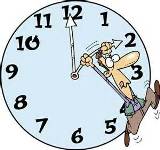
Does anyone else struggle with this phenomenon? I believe if it weren't for the jingle we all learn about springing forward and falling back, we'd be even more befuddled than we are.
SHARE YOUR ANECDOTES
If you have a story (real, written, or read) about Daylight Saving Time, make a comment and share with the rest of us.
My bedside clock doesn't get it. I purchased it when the time change was still the last weekend in October. It was programmed to automatically change the time in the fall and spring. It still does that, but now a week earlier than the official date. But it makes a good excuse for being late … or is that just in the spring?
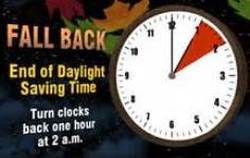
Note that the correct term is "Saving Time" not "Savings Time", abbreviated DST. The period runs from 2 a.m. on the second Sunday in March to 2 a.m. to the first Sunday of November.
I'm always taken off guard when the time comes around to change the clock. What are your thoughts on Daylight Saving Time? Do you like it or dislike it? Find it hard to adjust? Do you know the purpose and history of Daylight Saving time?
WHERE DID THIS COCKAMAMIE IDEA COME FROM?
Most of the stories (myths, legends) one hears are either incorrect or only part of the history, and the idea actually goes way back.
● The general idea of daylight saving was first suggested (indirectly) by Benjamin Franklin in 1784, while US ambassador to France, for the purpose of saving resources. While Ben often gets the credit, he really didn't propose anything about setting the clock differently. He only suggested rising at dawn would get more out of the sunlight hours...essentially, a change in sleep schedule.
● In 1908, Englishman William Willett wrote a pamphlet called “The Waste of Daylight.” His proposal was considered by the British Parliament, but the bill didn't pass. Willett died in 1915, on standard time, without success.
● In April, 1916 Austria and Germany adopted Daylight Saving Time as a wartime measure to conserve electricity. Other countries in Europe followed suit, including Britain. The US accepted the idea in March 1918, as a wartime measure, not for the benefit of farmers, as some people believe.
● After WWI ended, Woodrow Wilson ceded to popular demand and repealed Daylight Saving in the U.S.
● WWII brought Daylight Saving back to the fore in 1942, when FDR mandated the measure, known as "War Time", throughout the United States. This time, it stuck for most of the country.
● For years, different cities and states in the U.S. started and ended their daylight saving time on different dates, creating chaos throughout the country. Congress passed a law in 1966 which set a standard for Daylight Saving Time with the period beginning on the last Sunday in April and ending on the last Sunday in October. The law gave the states the option of remaining on standard time year round.
Arizona—with the exception of the state's Navajo Nation—and Hawaii did not wish to participate. The overseas territories of Puerto Rico, American Samoa, Guam and the Northern Mariana Islands, and the US Virgin Islands didn't participate. However, some local variations persisted.
● In 2005, President Bush signed a law moving the Daylight Earning Time back to the first weekend of November, a measure designed to help cut down on the number of children injured or killed in automobile accidents while trick-or-treating after dark on Halloween.
One source claims that one of the reasons for extending into November was to encourage voter participation. The rationale was that more voters would go to the polls if it were still light when they returned from work. I hadn't heard this one before.
SO, ARE WE HAPPY?
Not everyone supports Daylight Saving Time—I don't think the term "Daylight Earning Time" ever kicked in. The states of Utah, Colorado, Idaho, Montana and Wyoming are reported to be looking into opting out of DST. In 2014, a bill was introduced in Kentucky to go to DST year round.
DAYLIGHT SAVING TIME ANECDOTS
The anecdotal material on the results of daylight saving time is abundant. If you have one, make a comment and share it. Here are a few.
● A man, born in Delaware just after midnight DST, managed to get out of being drafted into the Viet Nam war by arguing that standard time, not DST, was the official time for his state of Delaware for recording births. Under standard time, he was born the prior day and that day had a much high draft lottery number. He wasn't drafted.
● To maintain their published schedule, Amtrak does not allow trains to leave a station before the scheduled time. When the clocks are set back by one hour, Amtrak trains that are running on time have to stop and wait one hour. In the spring, the trains lose an hour and have to make up the lost time and arrive at the station on schedule.
● On the day when DST springs forward an hour, patrons of pubs become disgruntled about losing an hour of drinking time. There are been riots in bars when they have to shut down early, particularly in Athens, Ohio, home of Ohio University.
● In September 1999, with the West Bank on Daylight Saving Time while Israel has just switched back to standard time, a terrorist bomb attack was thwarted by the terrorists' lack of understanding of DST. The timing on the bombs, set to go off to kill two busloads of civilians, was misinterpreted by the terrorists planting the bombs in Israel. They went off an hour earlier than expected, killing three terrorists instead of the intended victims.
Don't miss my latest murder mystery entitled "THE LAST WEEKEND IN OCTOBER"
Would you believe it involves Daylight Saving Time?
Originally Posted on RB4U March, 2015
Resources
http://www.webpronews.com/daylight-saving-time-an-interesting-history-2014-10
http://highlandstoday.com/hi/local-news/daylight-saving-or-standard-time-20140928/
http://www.webexhibits.org/daylightsaving/
http://www.history.com/news/8-things-you-may-not-know-about-daylight-saving-time|
http://en.wikipedia.org/wiki/Daylight_saving_time_in_the_United_States
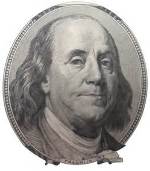
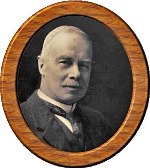
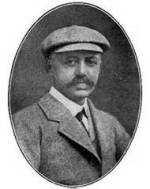

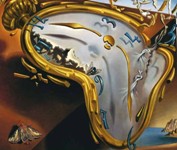
 RSS Feed
RSS Feed